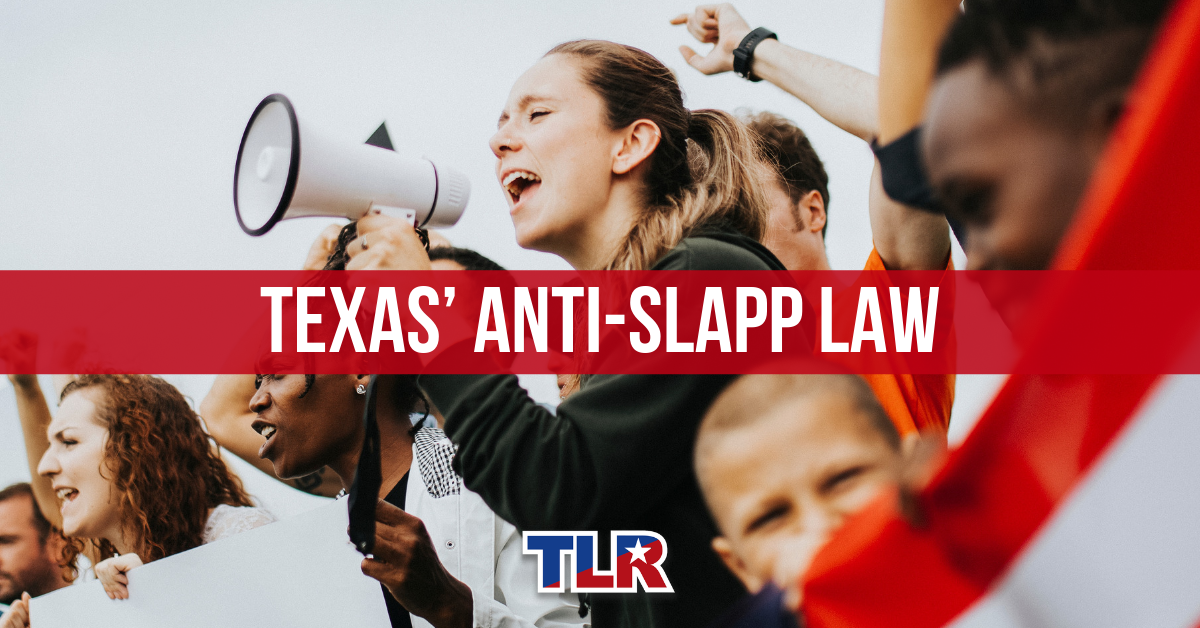
The TLR Foundation recently published its latest paper, The Texas Anti-SLAPP Statute: An Effective Statute, But is it Too Broad? The paper delves into the use of the Texas Citizens’ Participation Act (TCPA), which was passed in 2011 to protect the free speech rights of citizens.
When the TCPA was created, its intent was to prevent powerful interests from pursuing lawsuits against people who were exercising speech and association to impact public policy—in other words, lawsuits intended to suppress the constitutional rights of citizens. Those lawsuits are sometimes called Strategic Litigation Against Public Participation, or SLAPP. The TCPA, otherwise known as the Anti-SLAPP statute, provides a way to end those lawsuits early and shift the legal costs to the persons bringing the lawsuits to suppress the freedoms of speech and association.
A common example of a SLAPP lawsuit would be an unscrupulous land developer suing citizens who oppose zoning or deed restriction changes, or who oppose a new government project in their neighborhood. TCPA can make abusers pay for those suits.
However, as the foundation paper highlights, despite the Legislature’s intent in passing the law, the TCPA is unexpectedly being used to put an early end to all kinds of lawsuits that have nothing to do with safeguarding basic constitutional rights or protecting the rights of citizens to participate in government.
For example, The Advocate has previously discussed one Texas lawyer who wrote hundreds of letters to Texas businesses, threatening to file harassment lawsuits for alleged violations of the Americans with Disabilities Act. The lawyer essentially attempted to blackmail these businesses, saying he would forgo filing the lawsuits if they would pay him a few thousand dollars. The State Bar of Texas sought to discipline the lawyer for the obvious abuse of his license to practice law. The lawyer responded, arguing the TCPA required dismissal of the State Bar’s disciplinary action because he was merely exercising his constitutional rights. The trial court agreed, dismissing the State Bar’s enforcement action.
The TCPA has also been used to dismiss a legitimate lawsuit filed by a Texas business that was suing a former employee to prevent the theft of its trade secrets. And it is being used to dismiss court orders in family law cases that protect children from inappropriate actions by uncaring parents.
These types of actions take the TCPA well beyond its stated purpose of protecting the broadcast and print media and citizens using speech or association in the public square.
The TLR Foundation paper initiates a discussion about whether, given the way it has been used, the statute should be amended by the Legislature to better focus its provisions on the abuses that led the Legislature to enact it in the first place. It can be found at www.tlrfoundation.com.
